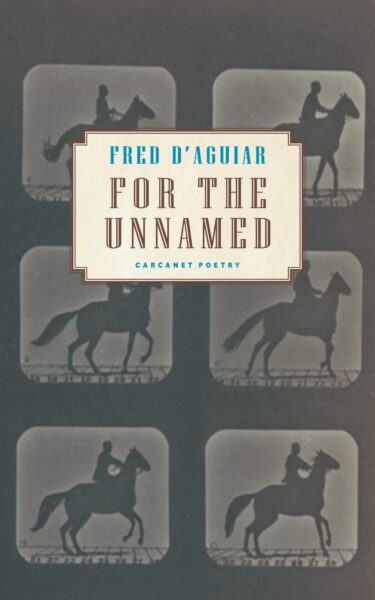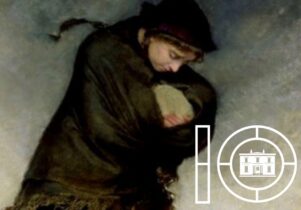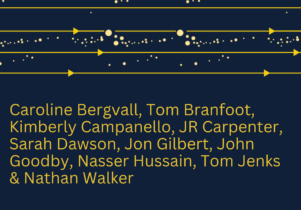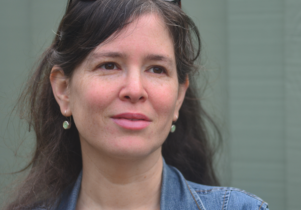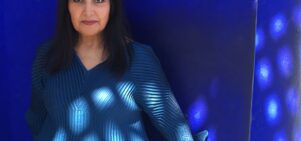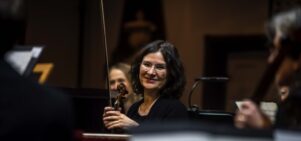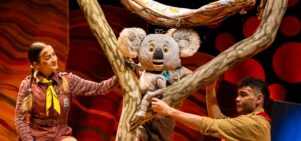Carcanet online book launch: For The Unnamed by Fred D’Aguiar
Sarah-Clare Conlon, Literature Editor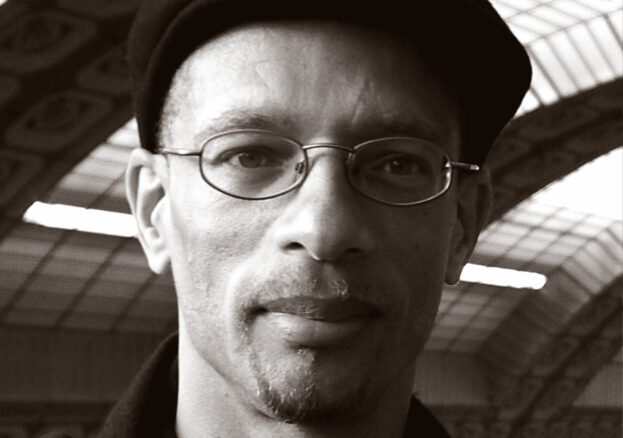
TS Eliot Prize-shortlisted poet Fred D’Aguiar launches his latest collection with Manchester’s Carcanet Press, reading extracts from For The Unnamed and chatting about it with poet and editor André Naffis-Sahely.
For The Unnamed, we’re told, was originally entitled For the Unnamed Black Jockey Who Rode the Winning Steed in the Race Between Pico’s Sarco and Sepulveda’s Black Swan in Los Angeles, in 1852, a title that provided the full narrative in a nutshell: we know the names of the owners of the two horses, we know the horses’ names, we know the name of the place where the race ran and we know the date. But apart from his colour, and his victory, we know nothing about the jockey who beat the odds to ride home an imported Australian thoroughbred, defeating his better-fancied rival.
Drawing on his experience as poet, playwright and novelist, Fred D’Aguiar recovers, reconstructs and re-imagines the jockey’s story, shifting skilfully between song, refrain and narrative. Despite it being the most publicised race of its era, with numerous press notices about the event, the jockey’s identity was never given – except to say that he was a free black man; that he had purchased his own freedom.
For The Unnamed presents the reader with several disorienting several perspectives on the action: of the horse, Black Swan, of the horse’s Native American trainer, of the owner Sepulveda, of the jockey’s lover and of the unnamed jockey himself. D’Aguiar connects the condition of namelessness for a famous black jockey and the freed man’s circumstances in the mid-19th century with a present-day need to give back those lost souls the dignity of their names. The collection centres black experience as pivotal in shaping the currents of our times and begins from the author’s excitement at recovering an event from history that shaped how the west of the US was won by white settlement and indigenous displacement. D’Aguiar’s framing of events asks us not to forget those other unnamed voices.
For The Unnamed is Fred D’Aguiar’s fifth collection with Carcanet. His previous poetry book, Letters To America, was a Poetry Book Society Winter Choice in 2020 and a White Review Book of the Year. In 2021, Carcanet published his nonfiction book Year Of Plagues. Fred D’Aguiar was born in London of Guyanese parents, and grew up in Guyana before returning to London for his secondary and tertiary education. He has lived in the US since the mid-90s and currently he is Professor of English at UCLA. He trained as a psychiatric nurse before reading African and Caribbean Studies at the University of Kent, Canterbury. He was Judith E Wilson Fellow at Cambridge University and has been shortlisted for the TS Eliot Prize.
Poet Carol Rumens, in The Guardian, has said: “A prolific, multi-talented writer in genres including drama, prose fiction and the verse-novel, D’Aguiar fulfils both contemporary and traditional expectations of the poet’s role.” The Times Literary Supplement’s Sarala Estruch meanwhile: “[D’Aguiar’s work] everywhere suggests the vital necessity of continually revisiting and revising our cultural past… It asserts the presence of those who have been written out of it and shows how the complex legacies of slavery and colonialism remain under-explored and undigested.”
Speaking to Fred D’Aguiar and introducing the event is André Naffis-Sahely, the author of two collections of poetry, The Promised Land: Poems from Itinerant Life (Penguin UK, 2017) and High Desert (Bloodaxe Books, 2022). He is an Assistant Professor at the University of California, Davis and the editor of Poetry London.
As always with Carcanet Press events, extracts of the text will be shown during the reading so that you can read along, and audience members will have the opportunity to ask their own questions. Registration for this online event is £2, redeemable against the cost of the book – attendees will receive a discount code and details of how to get hold of the new book during and after the event.
